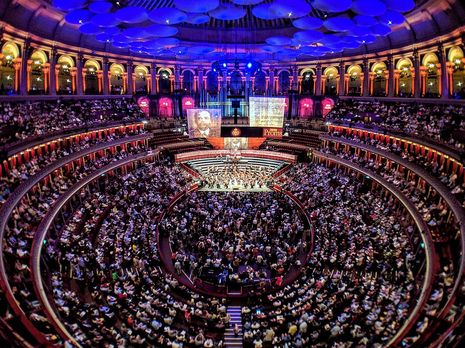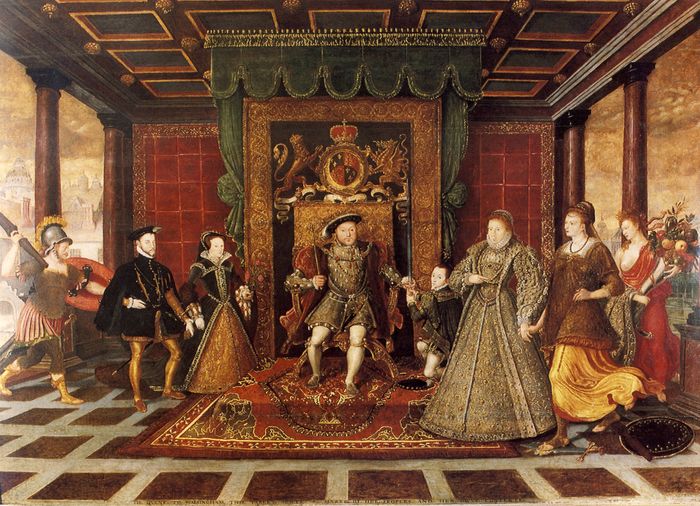The faux outrage surrounding the ‘Rule Britannia’ culture war
Jed Asemota critiques the discourse around cultural icons of imperialism, arguing it distracts from the systemic issues that modern Britain faces.

Controversy surrounding the BBC Proms’ now overturned decision not to include the lyrics to Rule Britannia has reinvigorated the seemingly endless battle that has come to define Boris Johnson’s Britain. From discussions about statues and Churchill’s legacy, to the singing of Swing Low Sweet Chariot, the supposed culture war is never far from public attention. The latest instalment is down to a decision that BBC Proms claimed to have made due to the lack of a live audience being present, but one which Boris Johnson’s government has nonetheless used to add fuel to the culture war fire. While there is potentially a worthwhile debate to be had here, it is evident that by focusing on the superficial patriotic symbolism of the act, we are ignoring the real structural issues that Britain’s unabashed and largely uncritical celebration of its Empire presents. We are not a nation prepared to seriously contend with its past, and as such, this sort of disingenuous outrage will continue to resurface any time any sort of introspection is suggested.
The story, which was somewhat taken out of context, has allowed Boris Johnson and other self-avowed patriots to once more conjure the poltergeist of a progressive mob seeking to undermine and subvert British culture. While initially it seems absurd for a Conservative government in their tenth year in office and with an 80-seat majority to suggest that progressivism is culturally hegemonic, it is actually laying the groundwork for an Americanisation of British politics and media and the stark polarisation that will follow. Figures such as Boris Johnson and Nigel Farage have emulated their right-wing counterparts in the US Republican party by casting aspersions on the impartiality of British media and institutions. This has created fertile ground for the recent revelations that Rupert Murdoch is planning a new US-style Fox News equivalent in the United Kingdom – a network to propagate the type of hyper-paranoia and nativism that fuels culture wars. Unfounded conspiracies like the ugly anti-Semitic trope about ‘Cultural Marxism’ sweeping our institutions have become mainstream, to which the only prescribed solution by the proponents of such theories is a total right-wing takeover of British media and institutions. The faux outrage generated by shining a spotlight on a single song is serving as a subterfuge for what is a radical reshaping of our political landscape.
“It is a patriotism that is hollow, vacuous and often xenophobic, appealing to a cultural right...”
The inability of right-wing culture warriors to even recite past the first few lines of the song at the Churchill statue ‘counter-protests’ in June illustrates how much of the outrage and supposed patriotism felt by them is indeed performative and often reductive. Patriotism in Britain is measured by a willingness to blindly wrap oneself in the flag – irrespective of it being soaked with the blood of centuries of colonial exploitation and imperial conquest. This fact is reflected by recent polling showing that 48% of the electorate consider Boris Johnson more patriotic than Sir Keir Starmer, versus a measly 18% who believe the opposite; this shows the culture war clearly working to Boris’s favour. By speaking up passionately on issues of statues and nationalist songs, yet remaining conspicuously silent on the A-Levels fiasco or proposed pay rises for nurses, it is evident that this so-called patriotism doesn’t extend to wanting the nation’s children to have fair educational opportunities or adequately paid NHS workers. It is a patriotism that is hollow, vacuous and often xenophobic, appealing to a cultural right that has been emboldened by a Prime Minister whose election victory was generously assisted by a backroom pact with Nigel Farage.
There is no British imperial rule without the ruled – a fact that this country seems in perpetual denial about. Rule Britannia is an ode to Britain’s naval dominance in the 18th century: a dominance that did not exist in the abstract, but was achieved through the conquering and subjugation of what amounted to practically half of the world’s peoples. Lines about Britons never being slaves were written in the security of the knowledge that Brits had such a firm hand on the whip, a reversal of roles was inconceivable. The Prime Minister described the initial decision to omit the lyrics at the last day of the Proms as a “bout of self-recrimination and wetness”, insisting that Britain should stop its “cringing embarrassment about its history”– a characteristically defensive response to the suggestion that British history may not be as glorious and noble as our staple patriotic songs claim. Yet the fact that events such as the Bengal famine or the Boer concentration camps aren’t as easily recalled by British schoolchildren as the Battle of Britain or King Henry VIII’s wives illustrates the extent to which the version of British history taught in schools and disseminated through the media has been sanitised. It is clear that the main concern isn’t the song itself but rather the irreconcilably contradictory view of history that it projects: that of Britain being simultaneously a great Empire while also a generous and liberal nation.
The truth is that we as a nation stand not on the shoulders of giants but on those of the colonised and enslaved. The unwillingness of Britain to acknowledge the resources and labour plundered from the global South was perhaps most aptly illustrated by the enraged replies to a National Trust tweet only a few days ago. The responses to an attempt by the National Trust to try and start a dialogue surrounding the links between British cultural heritage sites and slave labour revealed the crux of the matter; cultural conservatives in Britain see anything resembling the truth of British history as a ‘woke agenda’.
We are a country in wilful denial, desperate to think of ourselves as a great, self-made island nation. The reality, however, is that there is no great British exceptionalism or ingenuity that predestined the material success of this country – just centuries of relentless exploitation and greed.
 News / Right-wing billionaire Peter Thiel gives ‘antichrist’ lecture in Cambridge6 February 2026
News / Right-wing billionaire Peter Thiel gives ‘antichrist’ lecture in Cambridge6 February 2026 News / Cambridge students uncover possible execution pit9 February 2026
News / Cambridge students uncover possible execution pit9 February 2026 News / Epstein contacted Cambridge academics about research funding6 February 2026
News / Epstein contacted Cambridge academics about research funding6 February 2026 News / Man pleads guility to arson at Catz8 February 2026
News / Man pleads guility to arson at Catz8 February 2026 News / John’s duped into £10m overspend6 February 2026
News / John’s duped into £10m overspend6 February 2026









